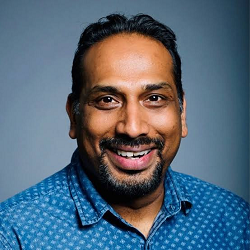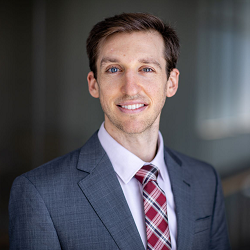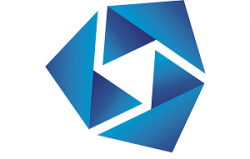Leveraging Generative AI (GenAI) to Optimize Research, Teaching, and Learning will explore best practices and applicable strategies for utilizing GenAI to optimize engineering education research and engineering teaching and learning.
Type: Instructor-Led
Delivery Method: Online
Duration: 3 hours
Date & Time
April 9, 2025
1PM – 4PM, ET
Registrations are intended for individual use only. For “watch parties” and group registrations, please contact learning@asee.org for discounted group rates.
Registration Fees
ASEE Member: $149
Non-member: $199

The use of artificial intelligence (AI) based applications is increasing across all engineering disciplines. In particular, the use of generative AI (GenAI) driven tools and applications such as ChatGPT, Dall-E, Midjourney, CoPilot, and Autodesk, has become increasingly widespread. Higher education must leverage these developments and tools to conduct better research and teaching and ensure that students are prepared to use these tools in their work and for lifelong learning.
This 3-hour long micro-course will explore best practices and applicable strategies for leveraging GenAI to optimize engineering education research and engineering teaching and learning. The course will start with an overview of how GenAI can be used and is being used across different higher education activities. This will be followed by hands-on examples and activities.
Specifically, attendees will learn how to use GenAI tools for paper drafting, instrument creation, and data management (generation, analysis, reporting, and presentation) and syllabus, topic, and assignment generation, assessment, and topic summarization. We will discuss both the opportunities presented by GenAI and the challenges in putting it into practice.
This workshop will further incorporate hands-on activities that enable attendees to see the impacts of these tools through analysis and first-hand experience. After the workshop, attendees will be given a list of tools and applications to continue to explore different features and evaluate the applications’ usefulness for their research and teaching practices.
Prior to the workshop participants who register will receive a survey that will collect feedback and suggestions on participants’ interests and experiences with GenAI and this information will be used to tailor the workshop and breakout activities.
 Aditya Johri, PhD
Aditya Johri, PhD
Professor, Information Sciences and Technology
George Mason University
Aditya Johri is Professor of Information Sciences & Technology and Dr. Lawrence Cranberg Endowed Research Fellow in the College of Engineering & Computing at George Mason University, USA. He studies how technology shapes learning across formal and informal settings and the ethical implications of using technology. He publishes broadly in the fields of engineering and computing education, and educational technology. His research has been recognized with several best paper awards and his edited volumes Cambridge Handbook of Engineering Education Research (CHEER) and International Handbook of Engineering Education Research (IHEER) received the Best Book Awards from Division I of AERA in 2015 and 2024, respectively. He served as a Fulbright-Nokia Distinguished Chair in ICT at Aalto University, Finland (2021) and he is a past recipient of the NSF Early Career Award (2009), the University Teaching Excellence Award (2002) and the Mentoring Excellence Award (2022) for undergraduate research at George Mason University. He was awarded a Ph.D. in Learning Sciences & Technology Design (2007) from Stanford University, Palo Alto, CA. More information is available at: http://mason.gmu.edu/~johri
 Andrew Katz, PhD
Andrew Katz, PhD
Assistant Professor, Engineering Education
Virginia Tech
Andrew Katz is an Assistant Professor in the Department of Engineering Education at Virginia Tech. He leads the Improving Decisions in Engineering, Education, Agents, and Systems (IDEEAS) Lab, which focuses on developing and applying methods to characterize and improve decision-making in engineering education. To achieve that goal, the lab uses multi-modal data for both quantitative and qualitative techniques. One particular focal area of the lab is on understanding mental models that individuals and groups hold and how those mental models inform their decision-making processes under varying degrees of uncertainty. Dr. Katz is also a recent recipient of an NSF CAREER award to study faculty members’ mental models of generative AI and how those informs their assessment decisions. More information is available at: https://andrewskatz.github.io/ideeas-lab-site/
